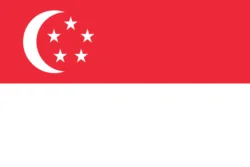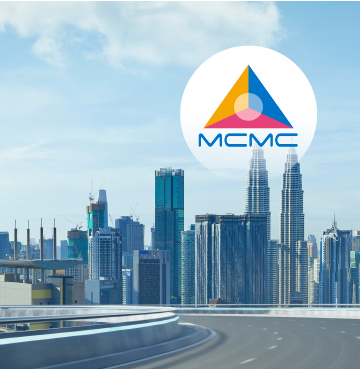

Telecommunication and radiocommunication equipment to be sold in Singapore is subject to equipment registration with the Infocommunications Media Development Authority of Singapore (IMDA). Prior to registering the equipment with IMDA, the equipment must comply with the relevant IMDA Standards/Technical Specifications.
Equipment registration is a process when telecom equipment is documented with the IMDA based on the submission of the Supplier’s Declaration of Conformity (SDoC). The SDoC signifies that the supplier has carried out conformity assessment according to IMDA’s Standards. The declaration should be based on a certification or tests of the equipment by a local or foreign body recognised by IMDA.
There are five types of applications depending on the registration schemes and equipment types:
-
Enhanced Simplified Equipment Registration (ESER) – Self-declaration
-
Simplified Equipment Registration (SER) – Self-declaration
-
General Equipment Registration (GER) – Declaration certified by an IMDA recognised Certification Body (CB) or declaration evaluated by IMDA. GER application is also optional for equipment categories that falls under the SER/ESER scheme but subject to registration fees under the GER scheme.
-
General Equipment Registration by Certification Bodies (GER-CB). GER-CB is applicable only to an authorised CB applicant under MRA Phase II for IMDA recognised Certification Bodies to register all types of the equipment.
-
Application for Confirmation of Conformity (COFC). COFC is voluntary for telecommunication equipment under which no approval for sale is required (equipment exempted from registration), e.g. Facsimile Transceivers.
IMDA also accepts equipment certification by local or foreign certification bodies recognised by IMDA under a phase II mutual recognition arrangement.
Foreign manufacturers need to have a local dealer. Applicants applying for equipment registration must be local equipment suppliers/dealers that hold valid Telecommunication Dealer’s Licence (Class or Individual) with IMDA.
Separate written approvals should be obtained from IMDA for the assignment of the operating frequency and the output power for the use with any registered radiocommunication equipment.
As an alternative to affixing the compliance label, a licensee may implement electronic compliance labelling. Electronic compliance labelling may be implemented by displaying the compliance label on the equipment’s built-in display screen or by including the compliance label in the equipment softcopy instruction manual.
The telecommunication equipment must also be marked with supplier/manufacturer’s brand or the identification mark, and supplier/manufacturer’s model or type reference. The markings must be legible, indelible, and visible.
Safety requirements:
The Enterprise Singapore is appointed by the Ministry of Trade and Industry (MTI) as the Safety Authority to administer the Singapore Consumer Protection (Safety Requirements) Registration Scheme (CPS Scheme), under the Consumer Protection (Safety Requirements) Regulations (CPSR).
The CPSR requires 33 categories of household products, also known as “Controlled Goods”.
These products need to be:
-
registered with Enterprise Singapore
-
tested according to specified safety standards
-
affixed with the Safety Mark before they can be sold in Singapore
The Enterprise Singapore also registers the suppliers of Controlled Goods, appoints third-party Conformity Assessment Bodies (CABs) to carry out product testing, ensures compliance with specified safety standards, conducts market surveillance, and investigates accidents, incidents or feedback relating to the safety of Controlled Goods
Registration of “Controlled Goods” under the CPSR is based on:
-
Certificate of Conformity issued by designated third-party Conformity Assessment Bodies (CABs) for Controlled Goods that fall into the medium- and high-risk categories. The CoC must then be submitted to Enterprise Singapore for registration.
-
Supplier’s Declaration of Conformity (SDoC) declared by Registered Suppliers for low-risk Controlled Goods.
The mark consists of a “safety logo” and the words “SAFETY MARK” in a rectangle on the right. These goods can also be traced with a unique 8-digit registration number to the registrant and the registered models.
Additionally besides the CPS Scheme, there is the Consumer Goods Safety Requirements (CGSR) under the Consumer Protection (Consumer Goods Safety Requirements) Regulations (CGSR) that aims to protect consumers from unsafe general consumer goods.
The CGSR covers all consumer goods that don’t fall under other regulations or regulatory agencies in Singapore. It is based on post-market surveillance and action. There is no requirement for pre-market testing, certification or approval from the Safety Authority.
Consumer goods covered by the CGSR must meet any of the following international safety standards: ISO, IEC, European Committee for Standardisation, ASTM International. Regional or national standards may also be accepted for consumer goods that do not have the applicable international safety standards.
Energy Efficiency:
The National Environment Agency (NEA) actively promotes energy efficiency in the industry, household, and public sectors through legislation, incentives, and public education.
Mandatory Energy Labeling (MELS) and Minimum Energy Performance Standards (MEPS) help improve the energy efficiency of a range of household appliances.
360Compliance provides Testing & Certification for type approval services and global market access in 195 countries. With proven expertise in worldwide regulations, 360Compliance can help your company shorten time to any market, minimize risks and manage the regulatory process from A-Z.
Contact us at contact@dev.lm-studio.co.il/360
You may also be interested





